isp
Latest
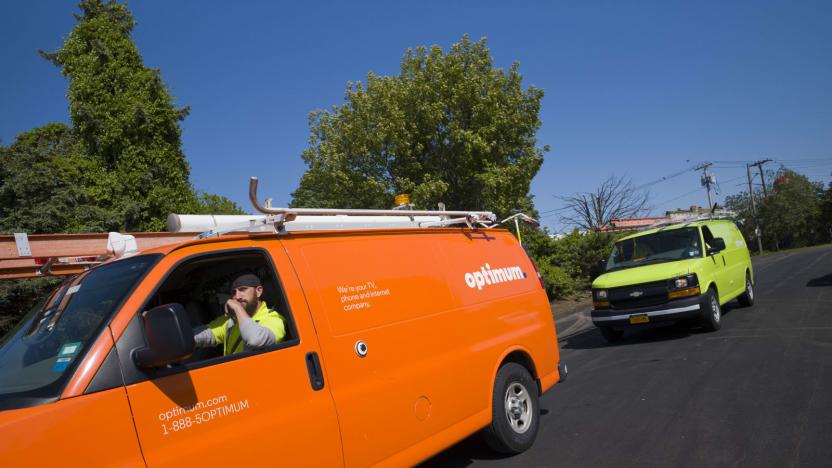
New York sets tougher standards for marketing internet speeds
New York isn't just asking Charter to clean up its act. The state has reached a settlement with Altice (Optimum's owner), Frontier, RCN and Engadget parent company Verizon that will have them adhere to stricter standards for advertising internet speeds. They'll have to back up their claims with regular speed testing, ensure they have enough network capacity to handle advertised third-party services and make clear that speeds on WiFi won't be the same as with a wired connection.

Utah ISP's internet filtering ad knocks customers offline
Internet providers are no stranger to targeting and inserting ads, but CenturyLink is being a little more... direct. Utah-based customers have discovered that CenturyLink is blocking their internet connections until they acknowledge an ad for the ISP's parental control software. That's annoying by itself, but it's doubly so when users need to fire up a web browser to even know the ad is there. Customer Rich Snapp, for instance, had his Fire TV stream interrupted and didn't realize the ad was present until he started troubleshooting.
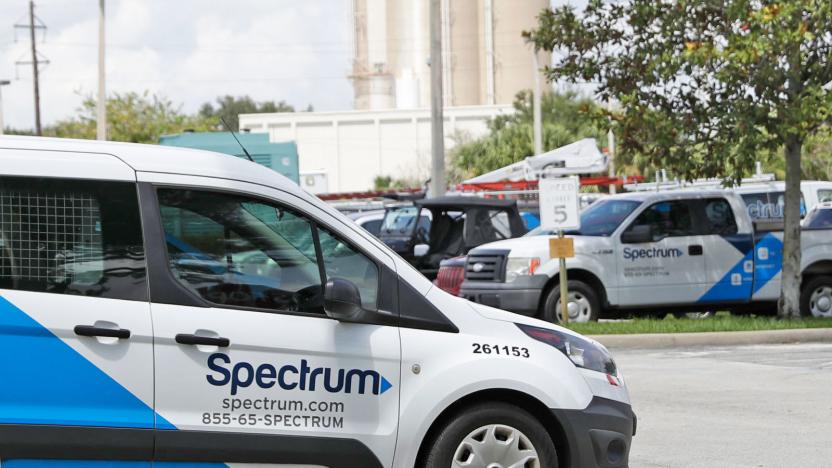
Charter agrees to $174 million settlement for poor service in New York
The New York attorney general's office has reached a settlement with Charter Communications for providing its customers with insufficient internet services. Under the settlement, Charter and Spectrum Management Holding Company will be required to pay customers $62.5 million in refunds and provide $100 million worth of services for free. Further, the agreement calls for Charter to be more transparent about its services going forward.

Canada court says ISPs can charge studios for hunting pirates
It could soon prove expensive for media makers to chase online pirates in Canada. The country's Supreme Court has unanimously ruled that internet providers are entitled to "reasonable" compensation when asked to link pirates' IP addresses to customer details. Voltage Pictures (the production firm behind The Hurt Locker) intended to sue roughly 55,000 customers of telecom giant Rogers for allegedly bootlegging movies, but balked when Rogers wanted to charge $100 per hour to comply with the requests for information. Rogers won the initial Federal Court case, but had to defend itself at the Supreme Court when Voltage appealed the case.

Music labels sue Cox again for allegedly ignoring piracy
Music labels really, really aren't a fan of Cox's internet service. Sony, Universal and Warner Bros. have sued Cox again for contributing to copyright infringement after it allegedly refused to take "reasonable measures" to fight piracy. While internet providers are supposed to terminate the accounts of users who ignore warnings against bootlegging music, Cox only ever conducted "soft terminations" (temporary disconnections) and warned some users over 100 times. It even instituted a cap on the volume of accepted copyright complaints and cut back on the number of anti-piracy staffers, according to the labels.
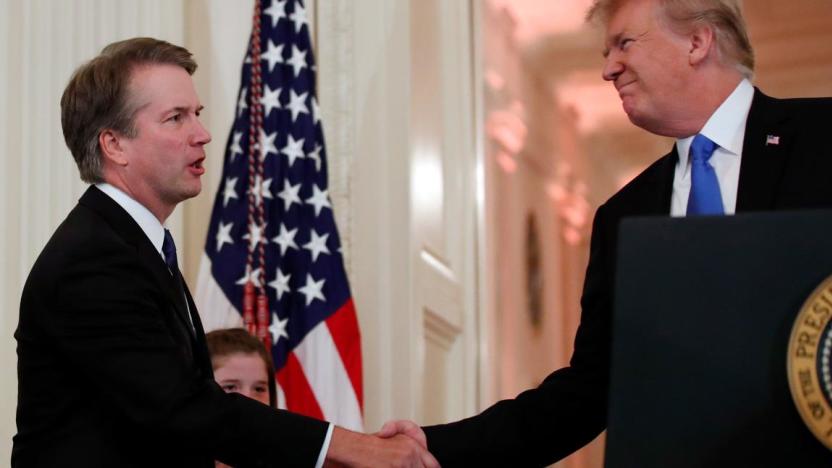
Our (likely) next Supreme Court justice doesn't get the internet
Barring some serious Democratic finagling, Judge Brett Kavanaugh is going to be our next associate Supreme Court justice. The problem is, he doesn't really get the internet. He made as much clear in a dissenting opinion he wrote in the thick of last year's net neutrality debate. Long story short, a panel of judges from the D.C. Circuit Court of Appeals upheld the FCC's 2015 Open Internet Order in 2016 after it was challenged by a coalition of telecom and cable companies. Those organizations then petitioned for a second hearing in front of the entire court, and were shot down again (.pdf here) in 2017. Kavanaugh disagreed with the court's decision, and then proceeded to lay out arguments for why the FCC's net neutrality rules were "unlawful."
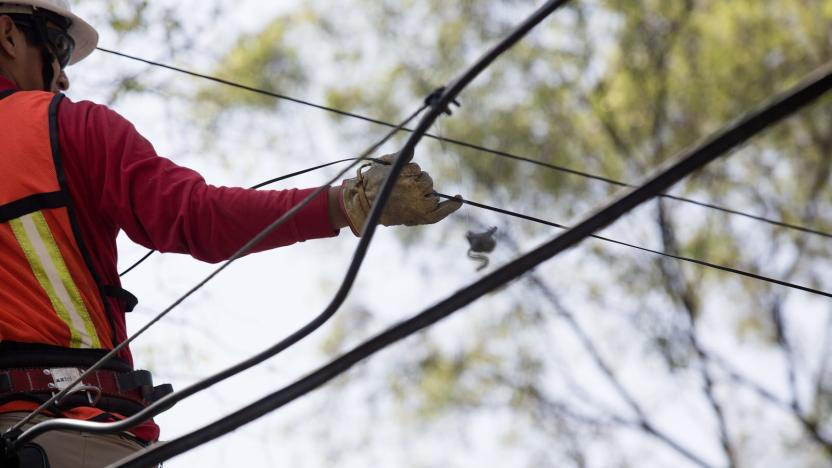
Small internet providers face a fight for their lives
A couple of weeks ago, a group of CEOs from seven small regional ISPs gathered in Washington to meet with the FCC. In a closed-door conversation with Chairman Ajit Pai and his colleagues, the CEOs made a case against a recent petition filed by USTelecom -- a trade association that claims AT&T, Verizon, CenturyLink and Frontier Communications as members. The petition, if granted, would threaten their very existence and, they argue, the future of competitive high-speed internet across the nation.

Oregon moves forward with its own net neutrality legislation
Oregon legislators just took a step towards protecting net neutrality in their state. The Oregon House of Representatives passed a proposal yesterday that would require state agencies to sign internet service contracts with providers that abide by net neutrality practices, meaning no blocking, throttling or paid prioritization. The bill now heads to the state Senate. While governors in Montana, New York, New Jersey, Hawaii and Vermont have signed executive orders that institute similar requirements on state agencies, a handful of states are pursuing comparable statutes through legislation.
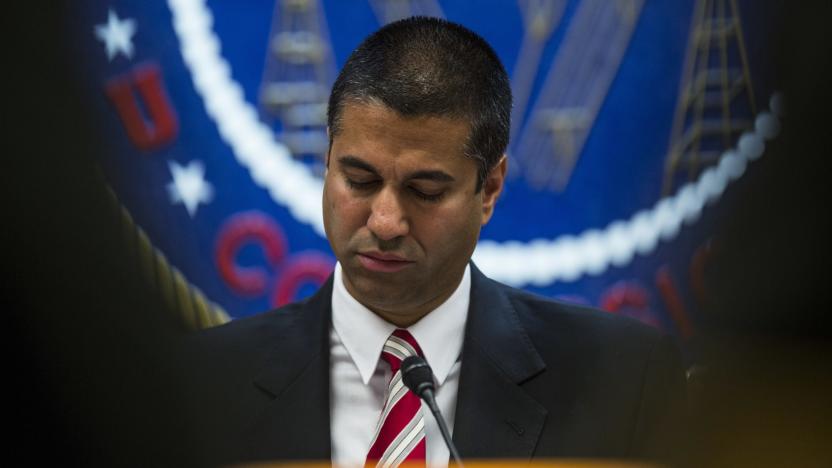
This is what transparency looks like without net neutrality
The Federal Communications Commission's proposal to dismantle net neutrality deletes the past two years of regulatory progress and essentially thrusts the internet back into the mid-1990s. Under chairman Ajit Pai, the FCC plans to remove the current ban on throttling, blocking or prioritization schemes, and revoke the internet conduct standard, which allows the commission to investigate zero-rating plans. Pai's proposal strips the internet of its status as a "common carrier" under Title II of the Telecommunications Act of 1996, drastically reducing regulation for internet service providers like Verizon, Comcast and AT&T. As the FCC tears down the rules that sustain a free and open internet, it's placing an incredible amount of faith in the honesty of for-profit ISPs. To offset decreased oversight, the FCC is relying on a new brand of transparency: ISPs will be responsible for publicly disclosing whether they're blocking, throttling or prioritizing any online content. Remember, these practices aren't prohibited in the new proposal.

Head to Verizon stores to protest the FCC's anti-net neutrality plans
It's highly unlikely that the FCC's latest plan to gut net neutrality won't go through, thanks to chairman Ajit Pai's record of consumer-unfriendly viewpoints and a Republican majority on the Federal Communications Commission. Still, advocacy groups and various websites have been pushing to preserve net neutrality for months now. The latest protest is looking to have people head to Verizon stores (Pai was a top lawyer for the telecommunications company) on December 7th to make their voices heard.

FCC chairman reveals plan to kill net neutrality
As expected, tomorrow, the FCC will release its plan to undo the net neutrality protections put in place during the Obama administration. Despite plenty of opposition, the FCC and Chairman Ajit Pai will go forward with the proposal, which will be voted on by the commission on December 14th. In a statement released today, Pai said, "Today, I have shared with my colleagues a draft order that would abandon this failed approach and return to the longstanding consensus that served consumers well for decades. Under my proposal, the federal government will stop micromanaging the internet."
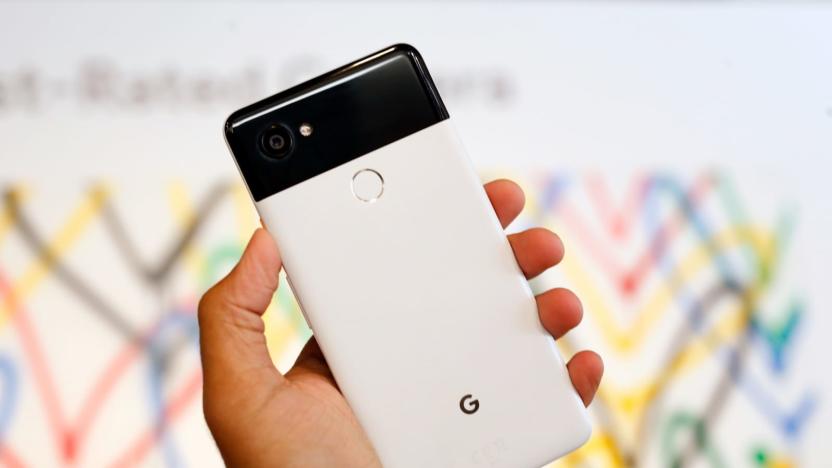
The Pixel 2 has a surprise: Google's first custom imaging chip
Google didn't spill all the details about the Pixel 2 and Pixel 2 XL at its October 4th event. As it turns out, these phones have a secret weapon: Google's first custom imaging chip (and indeed first system-on-chip of any kind), the Pixel Visual Core. The eight-core processor works closely with software to handle Google's machine learning-assisted HDR+ photography up to five times faster than the Pixel 2's main CPU, all the while using a tenth of the energy.
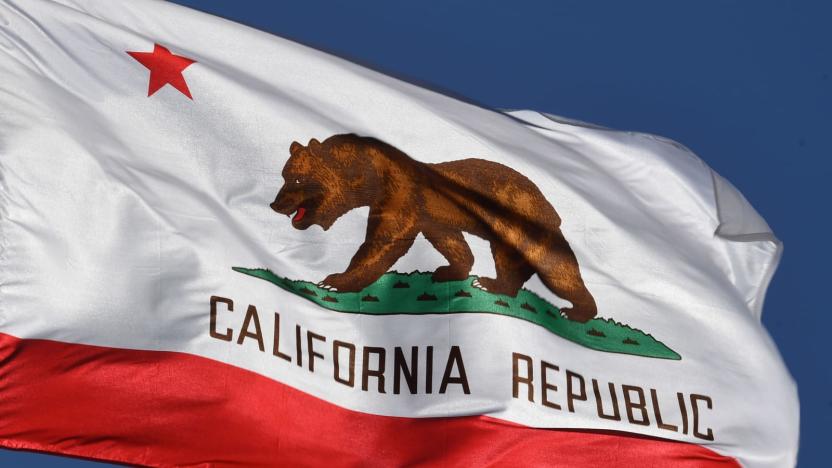
California shelves law barring internet providers from sharing data
If you were hoping a state legislature would effectively override the federal bill rolling back internet privacy rules, you'll have to keep waiting. California's legislature has ended its session without voting on a bill that would have prevented internet providers from collecting and selling data without permission, or charging you extra unless you gave up that data. The bill isn't dead (it was only introduced late in the legislative session), but it's shelved until 2018 at the earliest -- you'll have to hope your ISP prefers opt-in data sharing until at least then.
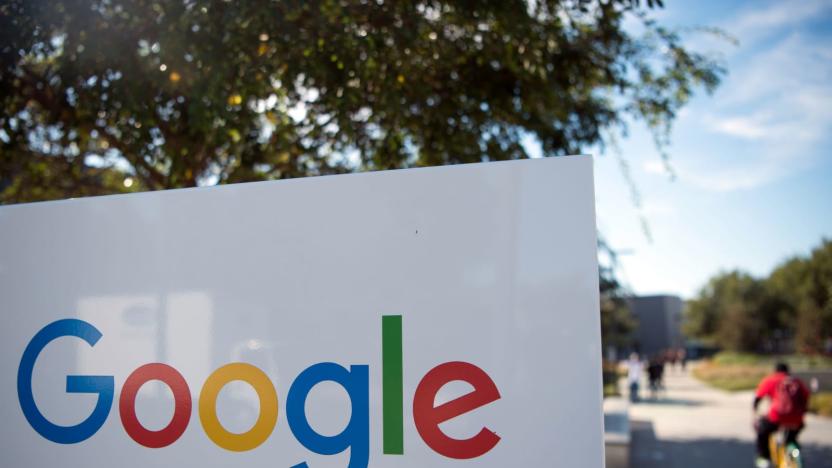
Google accidentally broke the internet throughout Japan
Last week, nearly half of Japan briefly lost access to the internet because of an error made by Google. The mistake was noticed and corrected within just a few minutes, but its effects led to hours of slowed internet connections. The impact was so large that Japan's Internal Affairs and Communications Ministry initiated an investigation into the issue.

Qualcomm's new depth-sensing camera is surprisingly effective
Dual cameras are so passé. Qualcomm is getting ready to define the next generation of cameras for the Android ecosystem. It's adding three new camera modules to its Spectra Module Program, which lets device manufacturers select readymade parts for their products. The additions are an iris-authentication front-facing option, an Entry-Level Computer Vision setup and a Premium Computer Vision kit. The latter two carry out passive and active depth sensing, respectively, using Qualcomm's newly revamped image-signal-processing (ISP) architecture.

BT offers broadband to every rural home in the UK, for a price
The UK was confident when it unveiled plans to make broadband available to every home by 2020, but how's it going to get there? BT thinks it can help. The telecom giant has made an offer to spend up to £600 million (about $788 million) giving 1.4 million rural homes access to internet with speeds of at least 10Mbps. This would theoretically help the government meet its goal in one fell swoop, rather go through a slow existing process that requires residents to ask for access. It sounds tempting, especially since the current approach would leave some waiting for access when 2020 arrives, but it's not as clear cut a solution as it looks on the surface -- it could lead to higher internet bills.
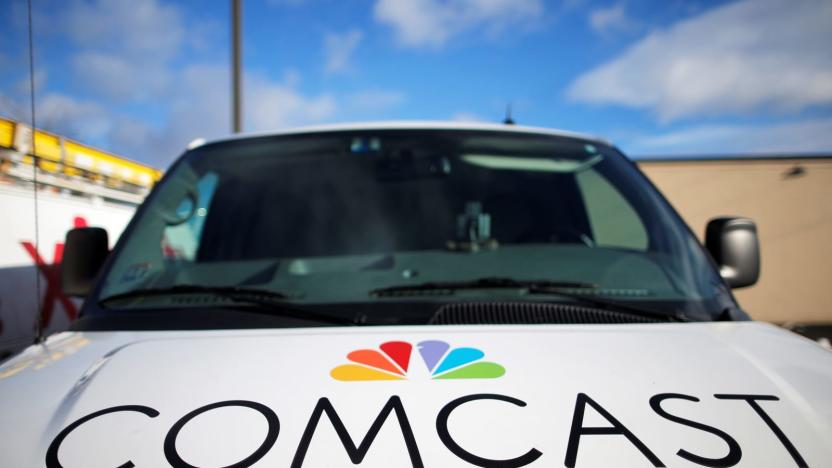
Local ISP claims Comcast sabotaged it into shutting down
Comcast, everyone's favorite internet service provider, is embroiled in a lawsuit for allegedly destroying a local business. According to the complaint, as the telecom giant encroached on the turf of a small ISP in Texas, Comcast cut the business's cables in the process of setting up its own, which the local internet company claims was no accident. The subsequent service interruption caused customers to jump ship to Comcast and ran the local ISP out of business, and its owners are suing for damages.

Seattle enacts broadband privacy rules where the FCC won't
Just because the FCC and White House have rolled back broadband privacy rules doesn't mean internet providers are free to sell your data without permission... if you live in Seattle, they'll still have to ask nicely. City mayor Ed Murray has implemented a rule requiring that cable companies obtain your consent before sharing your web browsing history and other data whenever it's needed for something besides essential service. As he explains, the city "will act" when it sees the national government stripping "critical consumer protections" -- it's filling in the gap the FCC has left open.
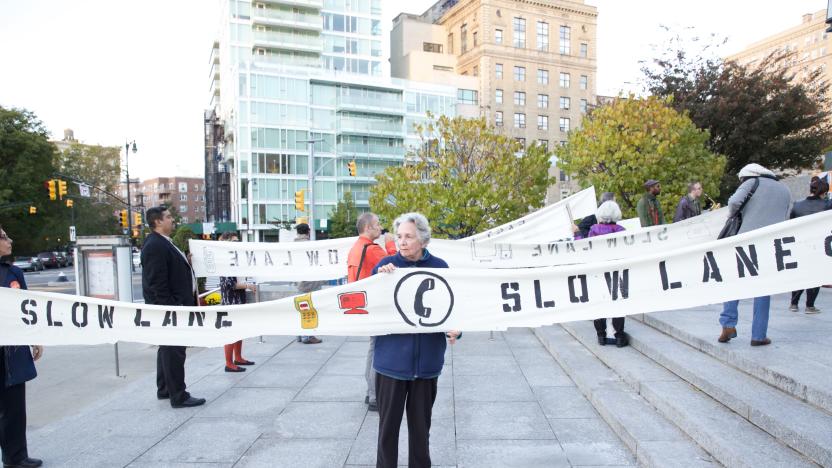
The federal courts have already given up on net neutrality
The head of the Federal Communications Commission, Ajit Pai, has not been quiet about his plans to gut net neutrality, and the US legal system is taking him seriously. A federal court on Monday denied a group of internet service providers the chance to re-argue their case against net neutrality rules implemented by former President Barack Obama's administration. The judges' reasoning? The FCC is about to get rid of those regulations anyway.

Facebook and Instagram go down for Virgin Media customers
If you're a Virgin Media customer and you're experiencing issues trying to access Facebook or Instagram, you are not alone. The broadband provider has admitted that customers have been unable to access Facebook services, including Facebook.com and Messenger. A fix is on its way, but the company warns that some customers could frozen out of their favourite social networks until later this evening.








